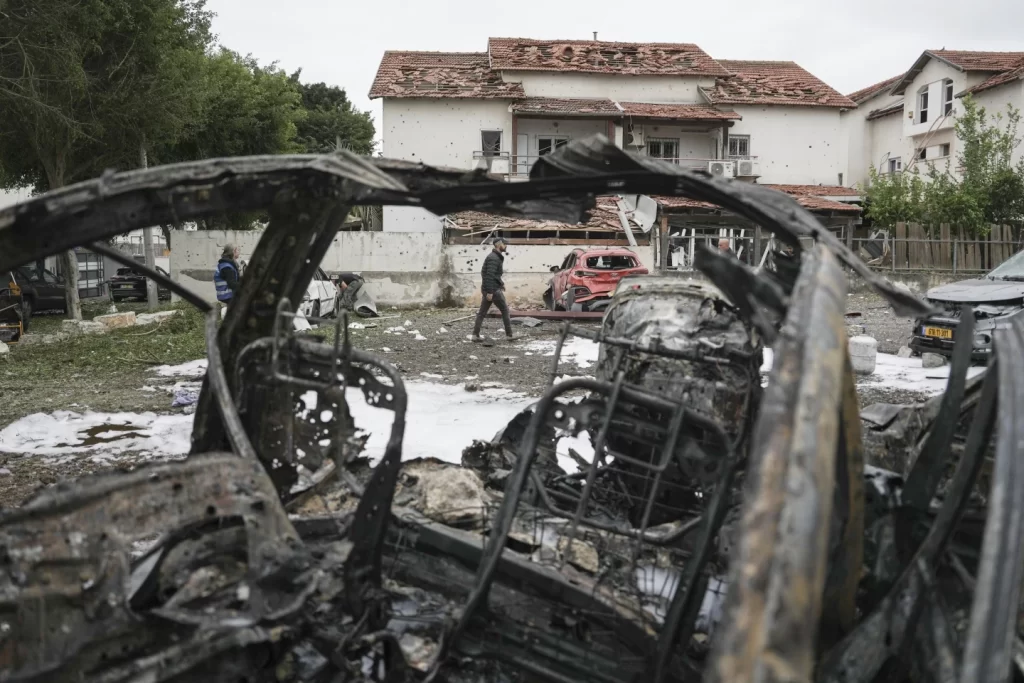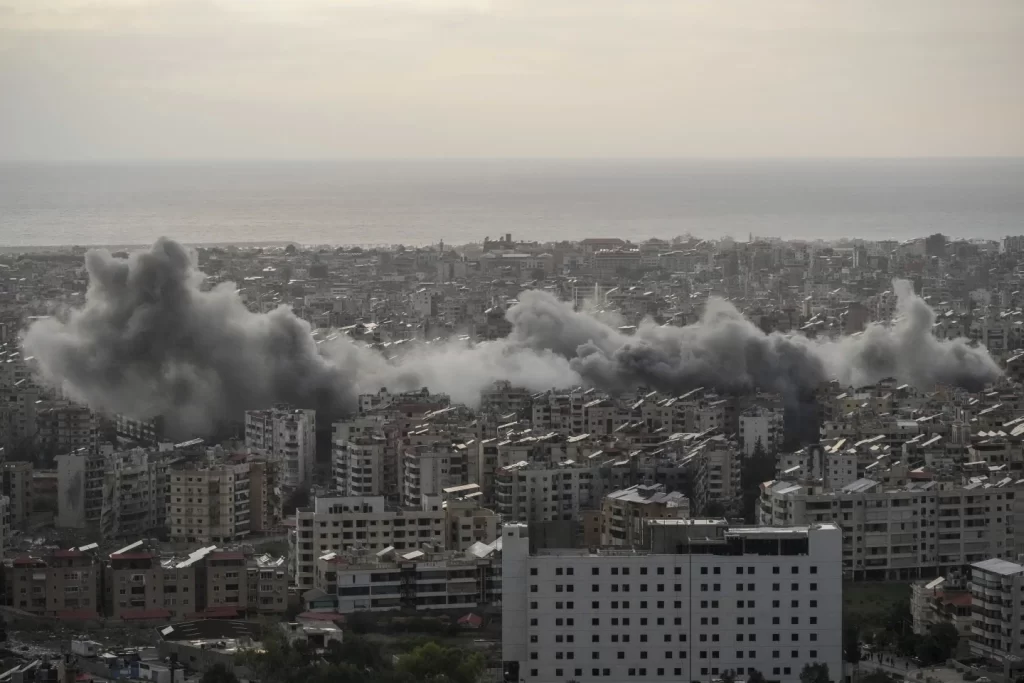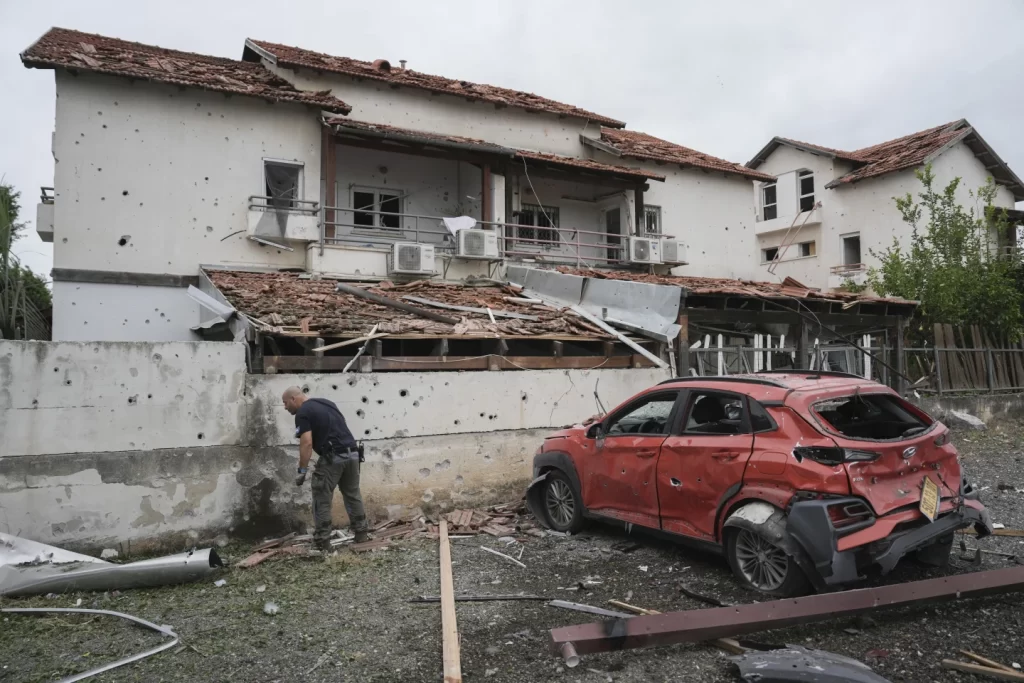Hezbollah fired approximately 250 rockets and projectiles into Israel Sunday in its heaviest barrage in months, reaching as far as Tel Aviv and wounding seven people, while Israel accidentally struck a Lebanese army position, escalating tensions as international negotiators push for a cease-fire.

The massive assault came in response to deadly Israeli strikes in Beirut Saturday that killed 29 people and wounded 67, according to Lebanon’s Health Ministry. Israel retaliated Sunday with fresh strikes on Hezbollah command centers in Beirut’s southern Dahiyeh suburb, where smoke billowed above the capital.
Seven Israelis were wounded in Sunday’s attacks, including a 60-year-old man in severe condition in northern Israel and a 23-year-old man lightly injured in Petah Tikva, near Tel Aviv. In Haifa, a rocket struck a residential building that police warned could collapse, while a 70-year-old woman suffered smoke inhalation from a vehicle fire.

An Israeli strike on a Lebanese army position between Tyre and Naqoura killed one soldier and wounded 18 others, prompting Lebanon’s caretaker Prime Minister Najib Mikati to condemn it as an assault on U.S.-led peace efforts. The Israeli military expressed regret, saying the strike occurred in an active combat zone targeting Hezbollah. More than 40 Lebanese troops have died in Israeli strikes since hostilities began.
European Union foreign policy chief Josep Borrell, visiting Beirut Sunday, revealed a potential breakthrough in negotiations, saying a deal was “pending with a final agreement from the Israeli government.” The EU offered 200 million euros ($208 million) to support the Lebanese military, though Borrell later expressed skepticism about Israel’s commitment to the process, citing its rejection of France’s participation in cease-fire monitoring.

The emerging agreement would implement U.N. Security Council Resolution 1701, requiring both Hezbollah militants and Israeli troops to withdraw from southern Lebanon below the Litani River, with Lebanese forces and U.N. peacekeepers patrolling the area.
The conflict has exacted a devastating toll, with Israeli attacks killing more than 3,700 people in Lebanon and displacing about 1.2 million – a quarter of the country’s population. On the Israeli side, approximately 90 soldiers and 50 civilians have died since early October, with 60,000 residents evacuated from northern communities.
Hezbollah began its campaign following Hamas’s October 7, 2023, attack on Israel, portraying its actions as solidarity with Palestinians. The situation deteriorated into full-scale warfare in September after Israel killed Hezbollah leader Hassan Nasrallah in widespread strikes across Lebanon.



